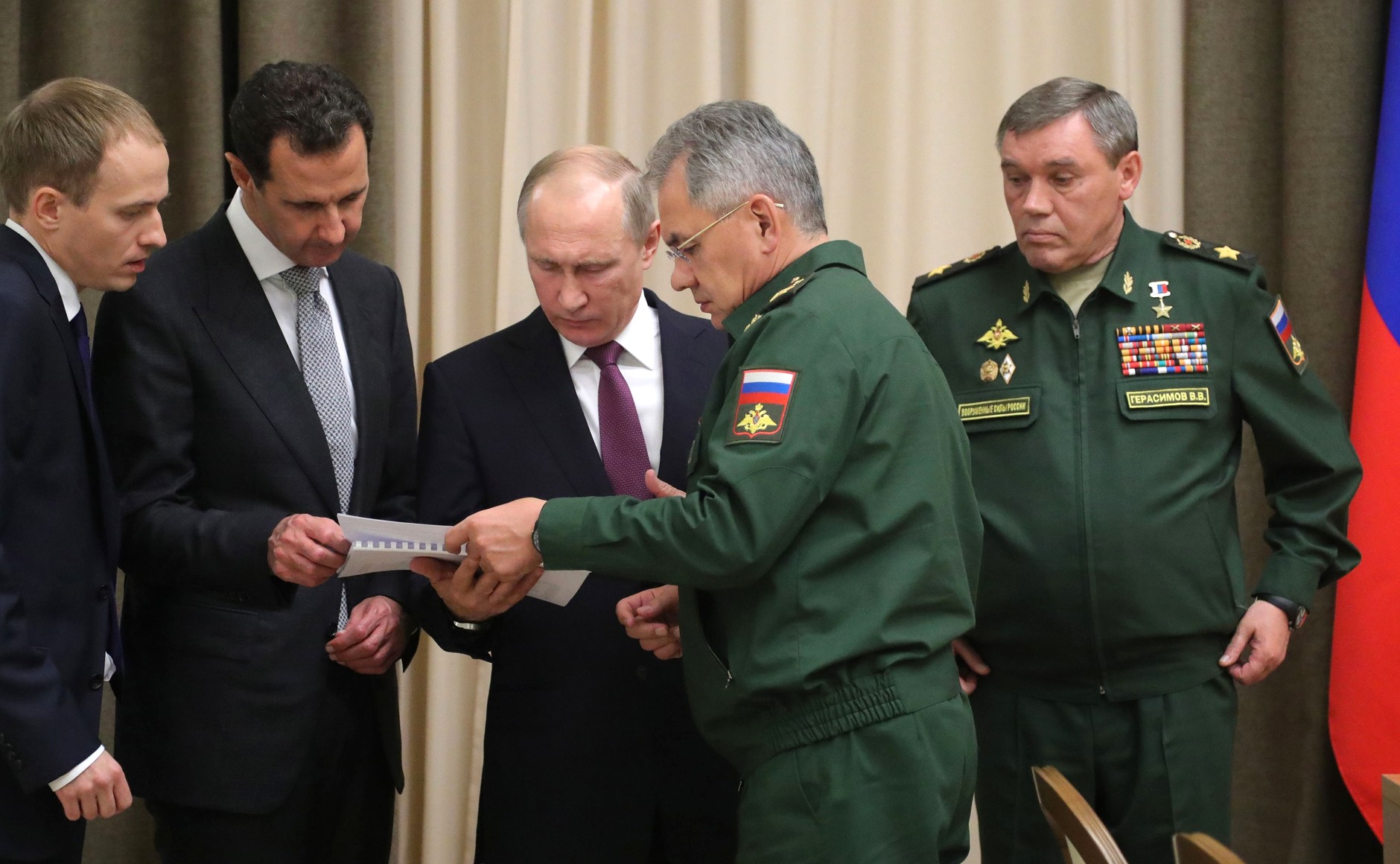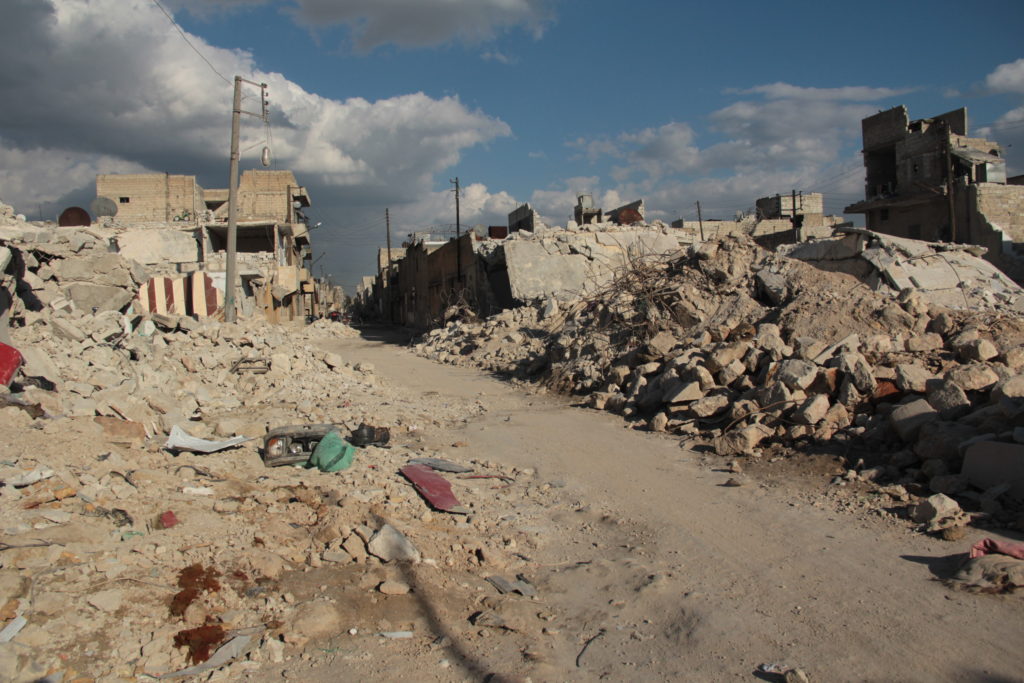Russia’s Successes and Failures in the Middle East

A key tenant in Russia’s new Foreign Policy Concept, passed in December 2016, was to increase their power and spheres of influence on the world stage. Since December of 2016, Russia has challenged the United States and the West through multiple mediums throughout the world. Russia has clashed with the West in Ukraine and blatantly interfered in the United States’ Presidential Election of 2016. However, in the last year, Russia has experienced many failures on the international stage. The election of Donald Trump did not materialize in a more sympathetic US government towards Russia, but rather increased tension and sparked a serious investigation into Russia’s interference in the election. In Europe, Russia’s prefered candidate in the French election, François Fillon, was defeated by Emmanuel Macron, erasing the prospect that French sanctions on Russia would be eased. With their struggles in the US and Europe, Russia’s few foreign policy successes have come in the Middle East. Through their continued presence in Syria, Russia has once again challenged the hegemony of the West in the Middle East. Yet, how successful has their intervention been and can they continue to achieve their goals in the future?
Russia’s immediate goal in Syria is to support the regime of Bashar al-Assad. Russia has a history of relations with Syria, supporting Syria since it joined the Eastern Bloc during the Cold War, and supporting Bashar al-Assad’s father Hafez Assad when he came to power. However, the reasons for Russia’s support of the Syrian government are as much about the West as their relationship with Syria. According to Dr. William Partlett of the University of Melbourne, a crucial reason for Russia’s support of Syria is to protect Syria’s “statehood”. Partlett argues that the Russian elites, including Vladimir Putin, are aware of the chaos created by Western interventions in Iraq and Libya and seek to maintain stability in Syria. This ideological commitment, coupled with Russia’s desire to reassert their strength in the Middle East, accounts for their support of Bashar al-Assad and the Syria government.

By Foreign and Commonwealth Office – Flickr, OGL
Clearly, Russia has achieved their immediate goal of supporting Assad. Not only does Assad remain in power and the Syrian government continue to exist, but as Robert Fisk, the Middle Eastern correspondent for the Independent writes, it appears that they are even experiencing some victories in the Civil War. Syria has recaptured Aleppo and continues to attack Islamist and anti-government rebels. Furthermore, while the United States continues to operate in Syria, the CIA has ended their support for Syrian rebels and Britain has removed their military trainers. The next battle in Syria appears to be one of reconstruction. As of now, Russia has helped maintain the statehood of Bashar al-Assad’s government.
Russia’s success in keeping the Assad Regime in power has also led to success in some of their broader foreign policy goals. Through achieving this immediate goal they have positioned themselves as major players in deciding the future of Syria. First, any reconstruction effort will need to include the interests of Russia. Unlike recent NATO involvement in Iraq or Afghanistan, Russia now can exert their influence on a Middle East conflict. On November 22nd, Vladimir Putin hosted a peace conference with Iran and Turkey to discuss the future of Syria. Additionally, a Russian-backed conference in Sochi agreed on a new Syrian constitution. While these conferences are unlikely to achieve their goals without the help of the United States and the West, they illustrate Russia’s increasing influence in Syria and perhaps the Middle East. Since Russia’s first intervention in Syria in September of 2015, they have increased their influence over Syria. When discussing peace or reconstruction in the country, Russia will need to be consulted. Dmitry Trenin, the director of the Carnegie Moscow Center writes, Russia’s intervention in Syria brings them closer to becoming a “global great power”.

By Kremlin.ru, CC BY 4.0
However, when looking to the future, Moscow will see a muddled path to success. While in the short-term Russia was able to support Bashar al-Assad, it seems that a rift has been developing. In February, a Russian-led discussion of the future of Syria generated no interest from the Syrian government. While Russia has been pushing for a negotiated settlement between the Syrian government and multiple factions, Syria has sought a military “final victory”. This position has led to frustration for Russia. The Valdai Club, a Russian government-sponsored think-tank said, “part of the government elite may have greater hopes for military victory than the dividends that negotiations would eventually pay.” Furthermore, Vitaly Naumkin, a Russian government foreign policy advisor, stated that “this military victory is an illusion; you cannot win this battle“. Thus, it appears that Russia faces a difficult decision. If Russia chooses to abandon Assad, they would open the door for the United States and the West to impose their dominance in Syria, but to continue to support the militaristic approach of Assad could prove problematic. This week, UN sources believed Russia is attempting to imitate Syrian air strikes, in order to shift the blame from its strikes back to Syria. This move could be an effort to distance themselves from Syria’s continued brutal military operations. However, as recently as March 13th, Russia threatened military action against the United States if they decide to strike Damascus. Thus, it appears that Russia itself is acting with uncertainty in deciding whether or not to continue to support Assad.
While Russia has been able to achieve their short and intermediate term goals in Syria, the next challenge will be much more difficult. Now that Russia’s military operation is ending, the diplomatic operation is just beginning, bringing a new set of obstacles. In working towards a peace settlement, Russia will not be able to match the resources of the United States and Europe, and their allies of Iran and Turkey will not be as useful as they were during the Civil War. Russia is facing an uphill battle– they were able to achieve some of their goals through military means, but it remains to be seen whether they can bring peace and lead the Syrian reconstruction effort. As of now, Russia has carved out a sphere of influence in the Middle East, but whether they have the resources and diplomatic skill to keep and fix their influence will be a much more difficult task.
Cover Photo By Kremlin.ru, CC BY 4.0
Edited by Benjamin Aloi
